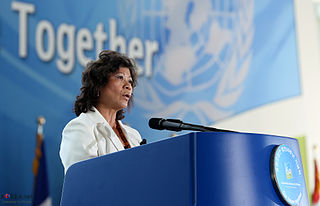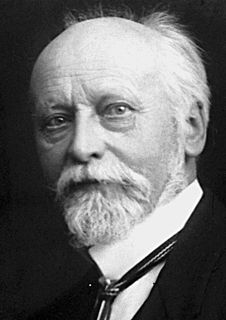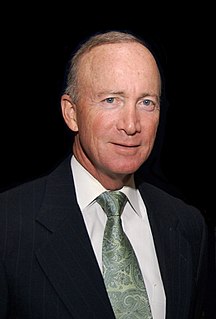A Quote by Paul Craig Roberts
Peace is costly to the profits of the military/security complex. Washington's gigantic military and security interests are far more powerful than the peace lobby.
Related Quotes
Peace is the absence of war, but beyond that peace is a commodity unlike any other. Peace is security. Peace is a mindset. Peace is a way of living. Peace is the capacity to transcend past hurts - to break cycles of violence and forge new pathways that say, I would like to make sure we live as a community where there is justice, security, and development for all members. At the end of the day, peace is an investment; it is something you create by investing in a way of life and monitoring where your resources go.
The concept of military necessity is seductively broad, and has a dangerous plasticity. Because they invariably have the visage of overriding importance, there is always a temptation to invoke security "necessities" to justify an encroachment upon civil liberties. For that reason, the military-security argument must be approached with a healthy skepticism.
If our nation goes over a financial Niagara, we won't have much strength and, eventually, we won't have peace. We are currently borrowing the entire defense budget from foreign investors. Within a few years, we will be spending more on interest payments than on national security. That is not, as our military friends say, a 'robust strategy.'
Defending against military-strength malware is a real challenge for the computer security industry. Furthermore, the security industry is not global. It is highly focused in just a handful of countries. The rest of the countries rely on foreign security labs to provide their everyday digital security for them.
There is no peace in Southern Africa. There is no peace because there is no justice. There can be no real peace and security until there be first justice enjoyed by all the inhabitants of that beautiful land. The Bible knows nothing about peace without justice, for that would be crying "peace, peace, where there is no peace". God's Shalom, peace, involves inevitably righteousness, justice, wholeness, fullness of life, participation in decision-making, goodness, laughter, joy, compassion, sharing and reconciliation.
In recent years the military has gradually been eased out of political life in Turkey. The military budget is now subject to much more parliamentary scrutiny than before. The National Security Council, through which the military used to exercise influence over the government is now a purely consultative body. But Turkish society still sees the military as the guarantor of law and order. The army is trusted, held in high regard - though not by dissident liberals. When things go wrong, people expect the military to intervene, as they've intervened over and over again in Turkish history.





































